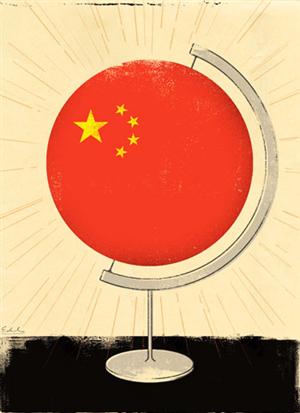In the fourth installment of his series of Radio Free Asia commentaries on billionaire gadfly Guo Wengui, Liang Jing looks at how Guo has accelerated the “internationalization” of China’s domestic crisis. Previous essays in the series have looked at other aspects of the Guo Wengui story; see installments one, two and three via CDT. Read more about Guo Wengui, who has become a target of Beijing’s wrath after taking to social media to lob a series of provocative accusations of wrongdoing against several top political and business leaders in China.
The Guo Wengui Affair and Internationalization of China’s Internal Crisis
Liang Jing, June 6, 2017
The Guo Wengui affair is the most important political event since the Lin Biao incident last century. While we cannot yet assess its political consequences, it will undoubtedly produce many long-term effects.
One thing is clear: internationalization of China’s internal crisis is speeding up. China was the biggest winner of this round of globalization, but it came at immense cost. A major reason the June Fourth incident failed to force the CCP to carry out fundamental political changes 28 years ago was that Deng Xiaoping grasped the opportunity brought by globalization to launch the whole country into a competition to “get rich first.” The dilemmas of political and social reform could in this way be temporarily avoided, while the moral resources needed for changing China were further depleted. China has become wealthy, but its internal crises are more profound: not only a majority of the rich, but almost all of the power and cultural elites, are overseas, especially in developed Western countries, arranging their “escape routes.” For this to happen in a country of over a billion people is unprecedented.
The logical result of this development is, on the one hand, to exacerbate China’s internal crisis of inadequate moral and social resources; on the other, a long-term trend of internationalization of China’s internal crises. The Guo Wengui affair is taking place against this background. Without it, it would be unthinkable that Guo Wengui could, with the strength of one man, “demand justice”—challenging the entire national machinery—and actually force the authorities to dispatch people to the U.S. to negotiate with him.
How much justice he can get is still hard to say. For an important consideration in today’s world is that the balance of power between China and Western nations has undergone a historical shift, with the latter in crises of their own. Not only is the West finding its own strength checked, it is also loath to see China descend into a large-scale civil strife, further exacerbating the crisis of the global order.
The issue is, regardless of how much justice Guo Wengui can achieve, the truths he has exposed have had and will continue to have a profound impact on the choices of the Chinese elite and even the middle class. That China’s political class and wealthy elite have shifted so much of their ill-gotten gains and children, including those born out-of-wedlock, to the West shows that they lack confidence in the future of the country and cannot take responsibility for it. For their own wealth and their children’s future, there will be more people trying to leave China, or at least leaving open a back-door.
This trend has in fact grown very strong in recent years. In the U.S. alone, the number of Chinese students has already reached around 300,000 each year. This has had a systemic impact on American university education. Reaching West: Dreams of China’s New Generation, a documentary recently released by the American Public Television Network, shows clearly how the irresistible tide of overseas study has spawned a considerable industry in China. The authorities categorically terminating this development would trigger a serious crisis, while allowing it to grow rapidly would pose serious challenges.
The crux of the matter is that the Beijing regime’s “reform” is unable to provide a sense of direction, or expectations, that convince. While the “cultural self-confidence” that Xi Jinping has come to emphasize has positive implications, his ideological control of universities stifles the liberation of thought and debates about values that China urgently needs. The recent storm over a graduation speech given in the University of Maryland, not to mention the Guo Wengui affair, and the ensuing latest developments—Hu Shuli and Pan Shiyi suing Guo Wengui in New York—demonstrate that China’s internal crisis of values, politics and even the justice system all manifest an obvious trend of internationalization.
The internationalization of China’s internal crisis has accelerated thanks to Guo Wengui, and presents a huge challenge for both the Chinese and international communities. How China’s elites respond to this challenge will have a far-reaching impact not only on their own destiny, but indeed the world’s. [Chinese]
Liang Jing is an independent commentator with a background in official policy research in the PRC, whose current affairs column has been running on Radio Free Asia’s Cantonese website for 20 years.








